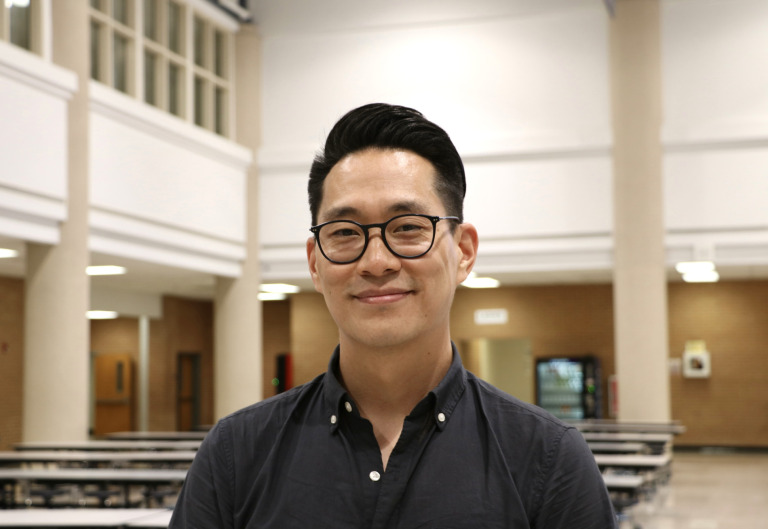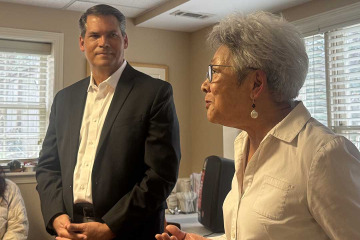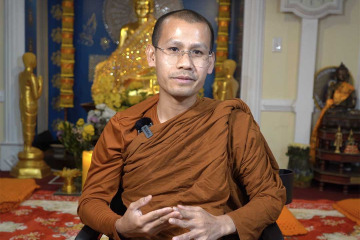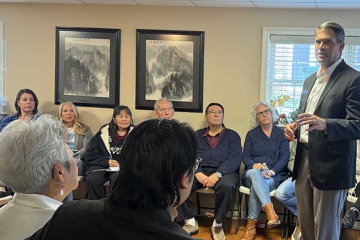By: Emily Laycock
Georgia Asian Times: How is mental health impacting your patients and the work you do?
Stan Sonu: I’m a teaching physician and a dual specialty trained doctor (pediatrician and internal medicine for adults). So I have the perspective of taking care of people from birth to elderly age and seeing people along the entire continuum of life. That perspective has enabled me to see what are the things that keep people healthy and what are the things that are making people sick. Maybe 150 years ago, if I asked that same question, I would be talking about infectious diseases. But in our modern society, there's no other problem that's more important to address than mental health, especially in the Asian American community.
Our society and communities are fragmented. We don't live in that cohesive family unit anymore. I think what we've created, not intentionally, but what we've created perhaps in the spirit of comfort and efficiency, is a society that is ok with being isolated and disconnected. I see more and more restaurants with single stalls, people just assume they're going to eat alone. It turns out that's not okay for the human body, it is actually antagonistic to our flourishing. We need to be connected to do well. If you look at the rates of depression, anxiety, or suicide rates, whether by ethnicity or age group, trends are very alarming. I think the general public assumes that we are doing better because we have more access to comfort and we live in buildings with AC, but that's not the case when you look at the data.
GAT: You have mentioned that there is especially a rise in mental health issues within the Asian American community. What specifically have you seen?
SS: I have a lot of friends who I grew up with here who are Asian American (Korean American/Chinese American). A lot of us have achieved that so-called American dream. We have the job. We have the spouse. We have the house in a safe community. We've achieved the things that our parents wanted us to achieve, and we're still not happy. You can tell there's a dissatisfaction, a sense of loneliness, or a numbness where people are stuck. They don't get too low or go into despair, but that also means they don't ever experience joy, wonder, and curiosity. Being stuck in this sort of narrow zone of emotionality is not how you thrive. So in my world, I see a lot of that. I see a lot of people who achieved the things that their families wanted them to do and it hasn't worked. It hasn't brought the satisfaction that I think a lot of us assumed would come.
GAT: Have you noticed it's harder for the Asian American community to reach out for help due to the lack of AAPI mental health resources and professionals?
SS: Cultural incongruity is a big deal. Most of the mental health-trained professionals in not just the Southeast but I think across the country don't exactly understand the Asian or Asian American experience and the pressures that we encounter in the home. East Asians are a high-inference culture where a lot of expectations are communicated not necessarily through explicit language, but through the actions of your parents or their silence or coldness, you know, they're giving you extra portions for meals. There's all these different messages. I think people who are not Asian might have a hard time understanding the significance of that. So when you meet with a counselor who doesn't understand that worldview, they might downplay it. You need someone who can empathize with that struggle, that wrestling between being duty-bound and honor-bound to your family, but also feeling deeply resentful at the same time, and you feel both.
I think another reason that it's hard for Asian Americans to reach out is the stigma against mental health in families. I think a lot of us experienced when our parents had conflict, like, a family member struggling. The way we dealt with it was denial, silence, avoidance, or to just brush it under the rug. It almost felt like if you were to acknowledge it and say the words out loud you give it life, you animate it, and it becomes a threat. It's created a situation where we're afraid to tell the truth and call out the truth. I'm not saying the answer to that should be that we overwhelm our parents and bulldoze past those cultural barriers. I think there are more subtle ways we can ramp our families into the discussion.
For example, if there's a conflict between a parent and child, one of the ways the child can have a deeper conversation with their parent might be to ask what it was like for them growing up as a child or what their experience was like with their parents. Those kinds of open-ended questions can help our parents consider, “Oh yeah things weren't really good.” They might say, “I love my parents so much, but there were a lot of things that I needed as a child that I didn't get.” That kind of opening of those memory spaces in the brain might help them be more receptive to hearing about their own children's lived experiences. We have to get past that stigma.
GAT: What are some of the ways you've seen in the past that are helping patients get over mental health struggles? What are your suggestions?
SS: I feel there's an urgent need to address the ways in which we've experienced trauma as children, and not just physical trauma, like natural disasters or pandemics, but the psychosocial, psychological, and interpersonal traumas.
I've been in this space around understanding how childhood trauma affects us over our entire lifespan, I’ve realized in the Asian American community, neglect is one of the biggest ones that we don't talk about. We experience neglect on a societal level, but it's not called neglect, it's called invisibility. Until recently the mainstream society and media didn't really understand what it was like to be Asian American, we don't fit into the White Black Binary very well. So people just kind of shrug their shoulders and they don't know where to put us, and if you don't understand my experience, I am functionally invisible to you.
So we experience that on a societal level and we experience that in the home. If your parents are immigrants and you were born in the States or came to the States early on, you speak English, and if your parents speak Korean, Mandarin, Japanese, etc. it's very difficult. You can talk about the weather, you can talk about food, but it's very difficult for you to communicate your inner world and experience in ways that they understand because of the language barrier. So to me, that's not an example of neglect by ill intent, but a structural situation causing neglect, where a parent cannot help and can’t understand what's happening in their child. Then along with that is a socio-cultural barrier. Like my parents did not understand what it was like to experience racism, to be called chink. When I was in the third grade I was like, Dad, I got called this on the bus, what does it mean? He knew it was bad, but he never experienced that before. There was not that ability to empathize with that experience. So I was just kind of left alone to deal with that.
At all these different levels Asian Americans have experienced a particularly severe type of neglect that we don't talk about. The way that neglect shows up is in perfectionism, emotional suppression, relational dysfunction, and anxiety. It shows up in this cycle of we feel duty-bound and honor-bound to serve our families, but then because we do and they don't understand us, we end up resenting them. So we swing to self-absorption and then we feel guilty about that, and we swing back to wanting to serve them, it is a vicious cycle. We operate under these dynamics thinking it's our personality or culture, when really it's a collective response to trauma.









